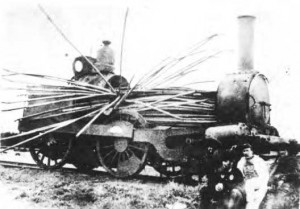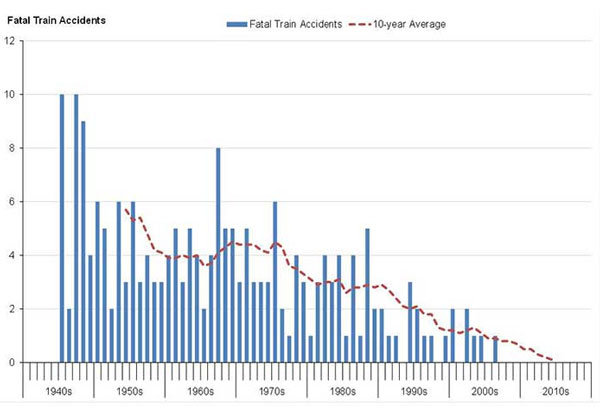ORR marks 175 years of rail safety in Britain
Posted: 18 August 2015 | | No comments yet
The Office of Rail and Road (ORR) celebrates 175 years of the Railway Inspectorate (RI) and its work improving rail health and safety in Britain. The Railway Inspectorate, now part of the ORR, has helped promote rail safety in Britain for 175 years via its safety inspectors. In 1840, through the Railway Regulation Act, the […]


The Office of Rail and Road (ORR) celebrates 175 years of the Railway Inspectorate (RI) and its work improving rail health and safety in Britain.


The Railway Inspectorate, now part of the ORR, has helped promote rail safety in Britain for 175 years via its safety inspectors.
In 1840, through the Railway Regulation Act, the Board of Trade appointed the first Railway Inspector to inspect construction and equipment of new railways. The Regulation of Railways Act 1871 is generally regarded as the founding legislation of the modern inspectorate. This Act consolidated previous provisions regarding the appointment of inspectors and the inspection of works. It also provided formal powers for the investigation of accidents and recommend ways of avoiding them. Safety improvements that followed included continuous brakes, guidance on boilers to avoid explosions, block signalling, rules for lookout men, designing cabs for driver protection in collisions, setting noise level maximums in driver cabs, and rules for emergency evacuation from trains.
Join our free webinar: Rail cyber-security in a time of technological and regulatory transformation
Join our expert panel, including speakers from Nokia and Siemens Mobility, to explore the critical convergence of cybersecurity and 5G rail comms.
Date: 3 Dec | Time: 15:00 GMT
Can’t attend live? No worries – register to receive the recording post-event.


1872 – bridge of Dun boiler explosion.
In more recent times safety by design has been a feature in much of the work including, automatic locking doors and sealed windows to prevent passengers being struck by trains while leaning out of windows. Welded rails led to fewer derailments due to track problems and level crossings developments meant safer ways to cross the line.
1994 saw the introduction of the Safety Case Regulations where every railway operator (trains, stations and infrastructure controller) had to prepare and have accepted a ‘safety case’. This is a document in which operators demonstrate that they have the resources, capability and commitment to ensure that safety practices are followed at all times and the safety of passengers and railway staff are not placed at risk. This regulation has since been updated.
The recent ORR report suggests railways in Britain are the safest they have ever been. However, the ORR still believes the work of its inspectors is vital in continuing rail safety.


Fatal train accidents – 10 year average
Marking the occasion the ORR added: ‘Safety never stops. It’s an ongoing story. We have a long, proud history of making railways safer. We continue to work with the industry and other partners to design out health and safety issues as much as possible and be vigilant in predicting and preventing issues before they happen.’
The ORR’s timeline displaying 175 years of railway safety can be viewed here.
OUT NOW: The Definitive Guide to Rail’s Digital Future
The rail industry is undergoing a digital revolution, and you need to be ready. We have released our latest market report, “Track Insight: Digitalisation.”
This is not just another report; it’s your comprehensive guide to understanding and leveraging the profound technological shifts reshaping our industry. We move beyond the buzzwords to show you the tangible realities of AI, IoT, and advanced data analytics in rail.
Discover how to:
- Optimise operations and maintenance with real-time insights.
- Enhance passenger services through seamless, high-speed connectivity.
- Leverage technologies like LEO satellites to improve safety and efficiency.
Featuring expert analysis from leaders at Nomad Digital, Lucchini RS, Bentley Systems and more, this is a must-read for any rail professional.







